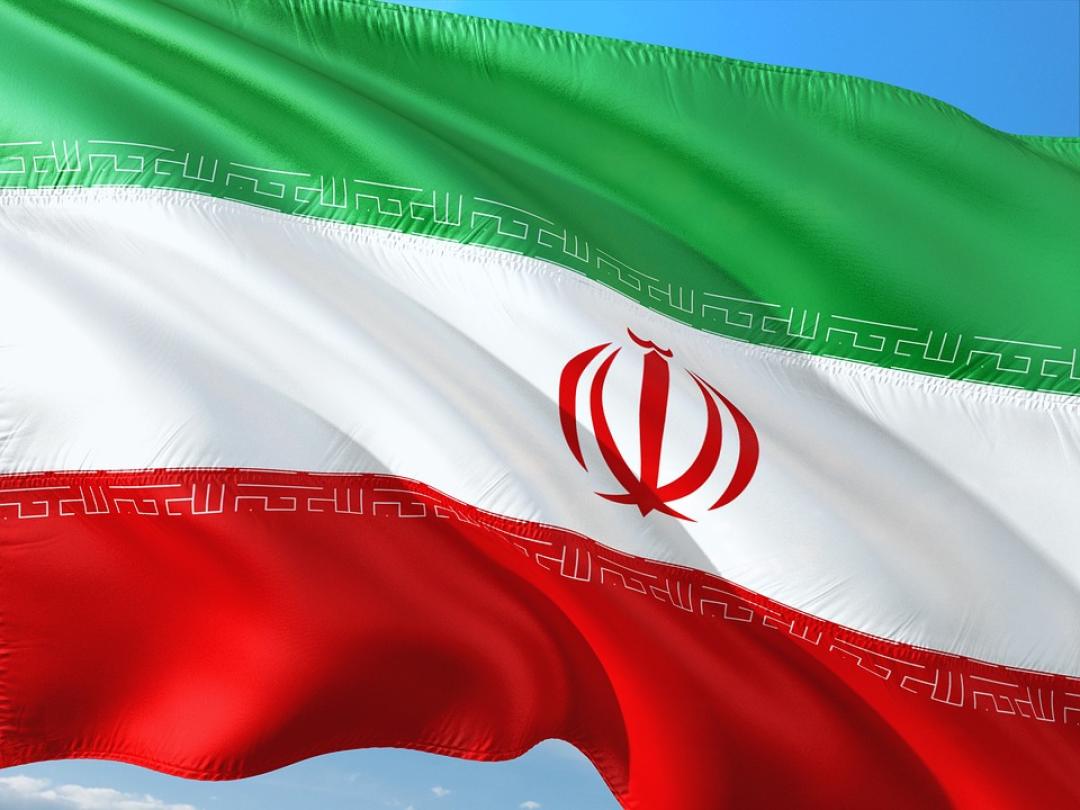
Growing tension between Azerbaijan and Iran

The struggles between Azerbaijan and Iran have significantly increased both during and after the Nagorno-Karabakh war. To date, both countries have repeatedly expressed their dissatisfaction with the other side.
Speaking about Iran on September 27, Azerbaijani President Ilham Aliyev said that earlier reports on the illegal entry of Iranian trucks into Karabakh was not the first time.
He stressed that although Azerbaijan was not aware of this at the moment, it had heard about the Iranian trucks before and conveyed its dissatisfaction to Iran through various channels.
Aliyev noted that after the war, Azerbaijan had the ability to monitor the Lachin corridor, the road to Khankendi/Stepanakert, Shusha and other regions with cameras, satellites, and drones. With these surveillance systems it was determined that Iranian trucks travelled to Karabakh after the war.
"In this case, I instructed the staff of the Presidential Administration to talk to the Iranian ambassador to Azerbaijan. We do not want to make it official. Let them speak in a friendly way and say it must end. It is disrespectful to us. It is disrespectful to Azerbaijan's territorial integrity."
Ilham Aliyev said that after giving this instruction in July this year, "they tried to deceive Azerbaijan" by pasting Armenian registration plates on Iranian trucks.
According to him, a month later, the Iranian ambassador to Azerbaijan was summoned to the Foreign Ministry and given an official note.
President Aliyev said that after two warnings to Iran, Azerbaijan began to control the road passing through its territory, thus reducing the number of trucks heading to Karabakh to zero.
"Look, it had to be brought here? There are a total of 25,000 people living in the Russian-controlled area of Karabakh. Is this market so important? Is this trade important enough to openly disrespect the country you see as a friend and brother?
Of course, we have used all the opportunities provided by international conventions and international law. Some say that we only collect customs duties on Iranian cars. Do we now pay customs duties when we go abroad? We pay. If they also use Azerbaijani lands, they must pay taxes" Aliyev said.
Since September 12, Azerbaijan has started checking the documents of drivers and cargo of vehicles with Iranian license plates in the Azerbaijani-controlled settlement of Goris-Kapan, as well as Iranian drivers carrying goods to Stepanakert/Khankendi.
Answering questions about the training of Iranian servicemen on the border with Azerbaijan, Ilham Aliyev said that this was a "very surprising" event, as no such events had taken place during 30 years of independence.
The president emphasises that it is a "sovereign right" of each country to conduct military exercises on its territory, but he asks why these exercises take place "now and why on the border with Azerbaijan?"
"These questions are asked not by me, but by the Azerbaijani society. This question is asked by Azerbaijanis all over the world. It is also asked why no training was held in that region during the occupation. Why were no trainings held when Armenians were in Jabrayil, Zangilan and Fizuli? Is it done after 30 years of slavery and occupation? These are legitimate questions.
Of course, we do not want anything to harm the long-term cooperation in the region. I want to say again that Azerbaijan is very responsible and measured here. I hope that the emotional reactions to our legal steps are temporary."
Commenting on the events, political expert Javidan Ahmadkhanli said, "after the Iranian ambassador's recent softening remarks and before the upcoming meeting of Azerbaijani, Iranian, and Turkish foreign ministers in Tehran, it was a bit unexpected for me that the president spoke openly. There is a serious crisis in relations with Tehran and the problems are still unresolved.”
Ahmadkhanli added that “Iran's number one concern is not to stay ‘off to the side’ in post-conflict regional combinations. This concern applies to both geopolitical processes and transport issues.”
“In general, for obvious reasons, Iran's strategy in the South Caucasus has limited room for manoeuvre. Speaking about the trainings, the President also hinted that ‘Azerbaijanis around the world are asking.’ If I am not mistaken, this is the first such message of the President against Iran.
From the outside, it seems that official Baku does not want Iran to go beyond its traditional framework in the Caucasus, to acquire a new role or roles, to pursue new ambitions. Whether it is the Chief or someone else. In other words, Azerbaijan does not want to turn a blind eye to Iran's initiative with the "new government has come, we have become aggressive, be careful." According to Azerbaijan, Iran can only have a say in issues related to the other side of the Araz, it can do what it wants. In the attacks on the processes in the north of the territory, Iran must take into account the demands of Azerbaijan”, Ahmadkhanli concluded.
See Also


Armenia Records 5.9% GDP Growth in 2024, Missing 7% Goal

Yerevan Balances Strategic Ties with Both US and Russia, Says Foreign Minister

FM Mirzoyan: Peace Deal with Azerbaijan Is Within Reach

Pashinyan and Erdogan Hold Call, Reaffirm Commitment to Ongoing Dialogue

